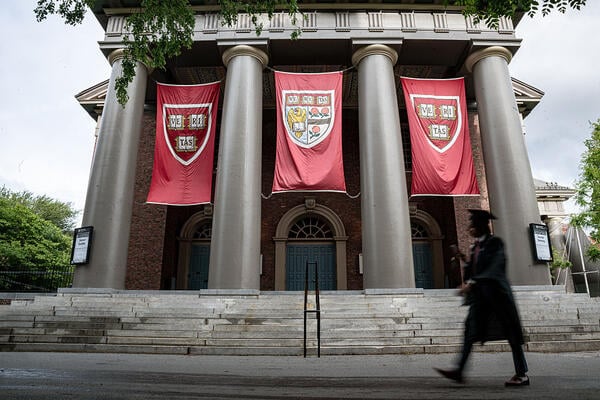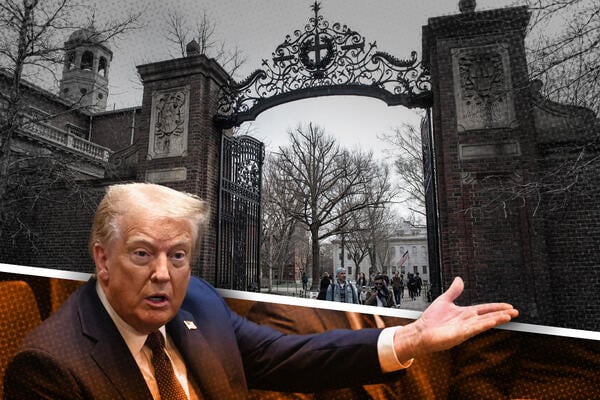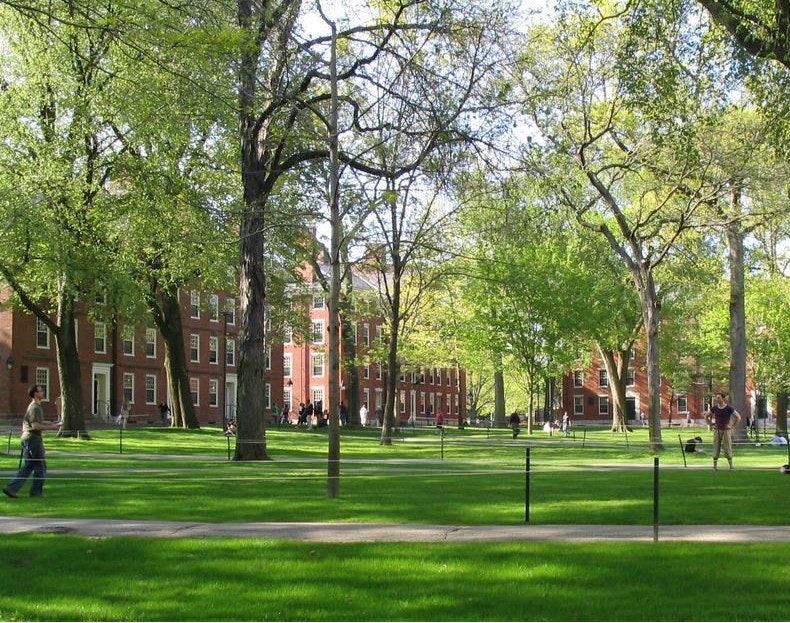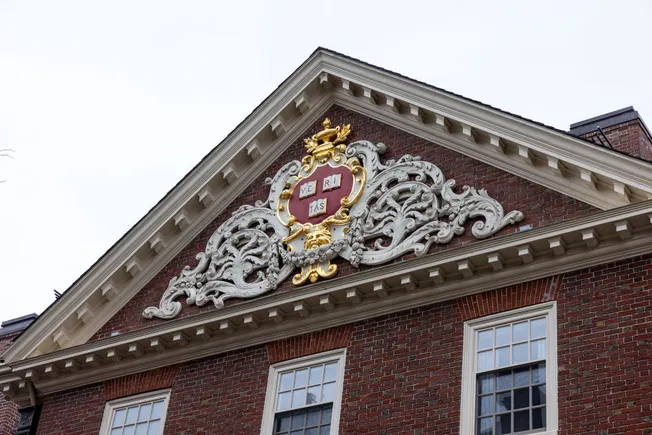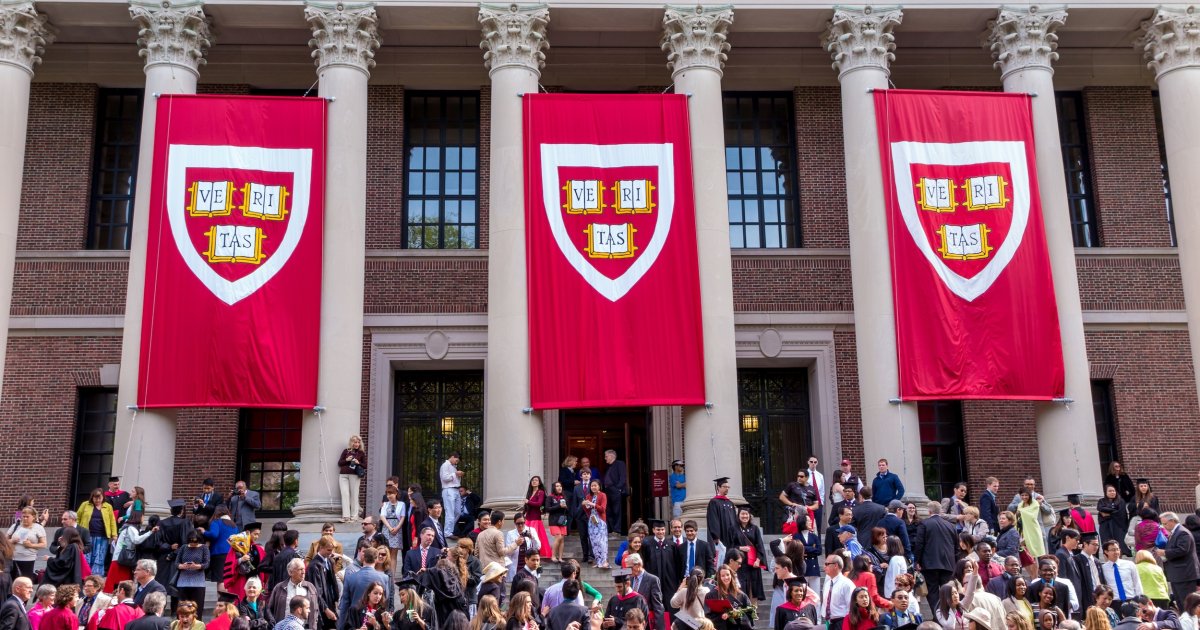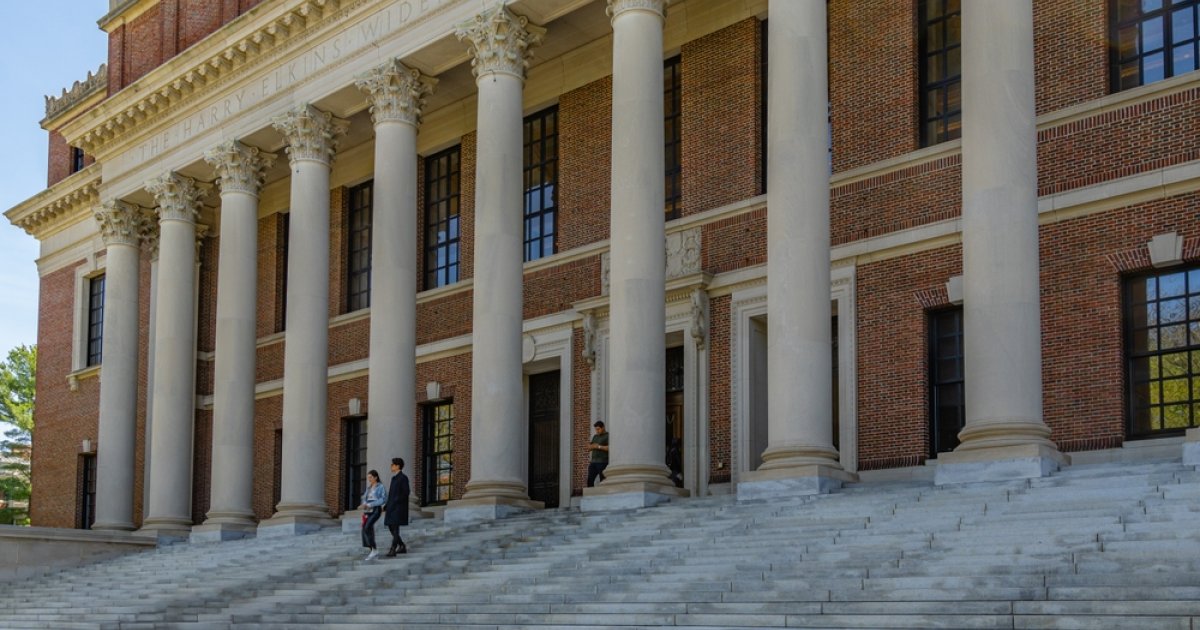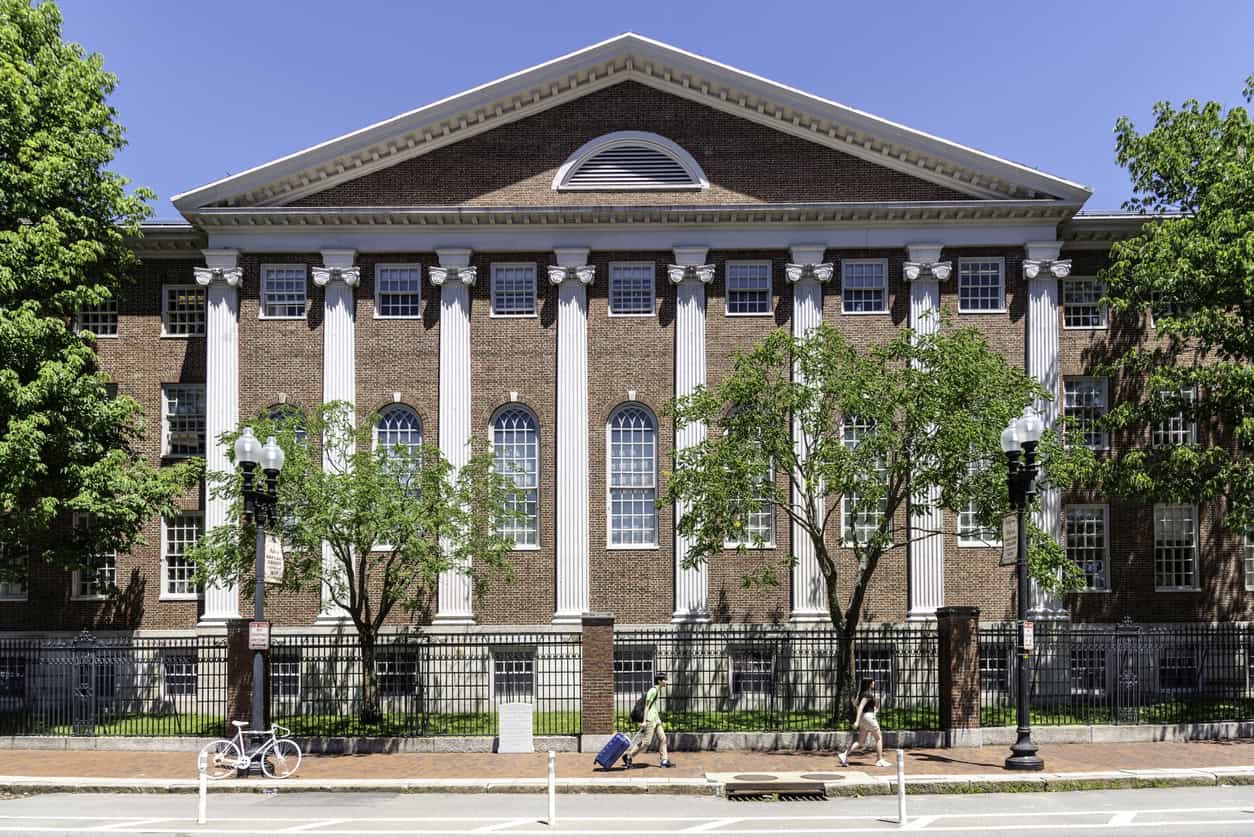Last month, the Department of Health and Human Services accused Harvard of violating Title VI, which bans discrimination based on race or nationality at any school that takes federal funding. Last week, it was reported that Harvard is nearing a $500 million settlement with the administration to end legal battles.
In the past two years alone, HHS noted, Harvard has accepted nearly $800 million from the government. But the threat to Harvard’s funding is just the headline. The sweeping theory of “harassment” HHS used to justify its claim has the potential to cause huge damage, not just at Harvard but across the nation, by collapsing protected speech and misconduct into a single charge that could turn campus protest into a civil rights violation.
There’s nothing new about the idea that we need to ban the expression of certain opinions in order to fight discrimination — that’s the reasoning behind a vast number of speech codes that FIRE has fought since 1999. The new, destructive twist on this is what we at FIRE call the cumulative theory of harassment. That’s the notion that while myriad individual instances of expression by unrelated individuals may be fully protected under the First Amendment, they can together create a cumulative harm, even to those not present and not targeted by the speech, that justifies overriding the Constitution.
By using the cumulative theory of harassment, the government can smear those following the law with the actions of those breaking it.
In Harvard’s case, HHS has determined that since the October 7, 2023, Hamas attack on Israel, the accumulation of antisemitic and anti-Israel rhetoric constitutes a “hostile environment on its campus for Jewish students.” HHS claims Harvard failed to “take appropriate corrective action” to end this hostile environment, thus violating Title VI.
At first glance, this finding may seem justified, or at least not worth worrying about. After all, most Americans are not exactly enthusiastic about their tax dollars going to fund campuses that are hostile environments for Jewish or Israeli students, or anyone else, simply because of their race, color, or national origin. Still, there are several major problems with interpreting the law in the way HHS does here.
Cumulative theory conflates protected expression with unprotected conduct
First and foremost, the government has deemed that a hostile environment exists at Harvard by conflating constitutionally protected expression — including core political speech, which gets the highest level of protection — with unprotected conduct such as vandalism, blocking entrances and exists, even acts of physical violence.
A single paragraph provided an illuminating look at how HHS blurs the line between protected speech and unprotected conduct in order to accuse Harvard of violating federal law:
Harvard student groups and faculty groups posted to Instagram an antisemitic cartoon that included the Star of David, dollar signs, and nooses. The image depicted “a white hand, marked with a dollar sign inside a Star of David, tightening nooses around the necks of a Black man [Muhammad Ali] and an Arab man [Gamal Abdel Nasser].” This incendiary image was subsequently reposted on Instagram by Harvard Faculty and Staff for Justice in Palestine.
It’s not hard to see why Jewish and Israeli students (and many others) would find this cartoon offensive. But it is undoubtedly political speech, which lies at the very core of what the First Amendment protects. In fact, the cartoon in question was originally published in 1967 by the Student Nonviolent Coordinating Committee, one of the best-known organizations of the civil rights movement of the 1960s. As the Los Angeles Times pointed out, it was controversial then as well, but this history only serves to clarify that it is indeed political speech. The Harvard groups’ use of the cartoon to make points about “apartheid and occupation” only reinforces the fact that it is political in nature.
Furthermore, there’s no question that, in a country where the First Amendment continues to protect even the likes of the Westboro Baptist Church holding signs saying “God Hates Fags” and “Thank God for Dead Soldiers” outside military funerals, the government simply cannot take action against others for merely for posting a political cartoon on social media.[1]
The next sentence in HHS’ paragraph reveals that some or all of these groups (the letter does not specify) apologized for posting the cartoon, but suggests the apology was insincere:
The apology for these postings came with a photo of a figure known for saying, “The only good Zionist is a dead Zionist.”
Indeed, the Harvard groups eventually replaced the cartoon in the infographic with a picture of civil rights activist Kwame Ture (Stokely Carmichael), who was known for his anti-Zionist views and who famously echoed the “dead Zionist” remark during a 1990 speech at the University of Maryland. But the revised post from the Harvard groups did not quote his remark directly, despite HHS implying that the Harvard groups were trying to associate themselves with Ture’s remark from 35 years ago. Besides, even if they had, it would still be protected speech both under the First Amendment and Harvard policies.
Then comes the paragraph’s conclusion, where HHS mixes all of that protected speech just discussed with unprotected acts:
A “series of anonymous acts” occurred on campus, including posters of Israeli citizens taken hostage by Hamas being vandalized with messages such as “Israel did 9/11.” There were also “instances of vandalism on campus and the posting of swastika stickers near Harvard Hillel’s Rosovsky Hall.”
Unlike the expression in the rest of the paragraph, vandalism, even when expressive, is not protected by the First Amendment. Defacing posters or putting stickers on them, especially if their removal damages the underlying surface, can be and often is prohibited both by law and by university rules. But that’s because it damages or destroys the vandalized item, not because of the content of the speech. Defacing hateful signs with stickers saying “I love everyone!” is still vandalism, and prohibited. Posting political cartoons on Instagram is speech, and is protected. But by using the cumulative theory of harassment, the government can smear those following the law with the actions of those breaking it.
Cumulative theory of harassment creates a general civility code
Another problem with the cumulative theory of harassment is that it holds current speakers responsible for creating a “hostile environment” based on the previous statements and activities of people to whom they may be entirely unrelated. This means anyone can find themselves in the position of perpetrator of hostile environment harassment without himself or herself actually engaging in harassing behavior.
Consider, for example, the following account said to “highlight the hostile environment created for Jewish and Israeli students at Harvard,” according to HHS:
On May 12, 2024, a crudely drawn image of Interim President Garber was also displayed [during an encampment protest] depicting him as a devil with horns and a tail, recalling “medieval antisemitic tropes of Jews as Satan’s minions.”
Like posting a political cartoon to Instagram, simply displaying such a picture simply cannot be deemed harassment by any rational measure, let alone be taken as serious enough to deny the person seeing it “equal access to an educational program or activity.” The Supreme Court’s decision in Davis v. Monroe County Board of Education established the standard for peer harassment under Title IX, holding schools liable only when they are deliberately indifferent to harassment that is severe, pervasive, and objectively offensive, and even warns of “the amount of litigation that would be invited by entertaining claims of official indifference to a single instance of one-on-one peer harassment.”
Under the cumulative theory of harassment, that’s out the window. A school like Harvard must consider each individual student’s choice to display this picture as part of a pattern of behavior that consists of everything everyone else is doing on campus during some undefined period of time, whether or not the student knew anything about it.
HHS doesn’t tell us who displayed the picture, how long it was displayed, whether others at the protest somehow signed off on it or objected to it, how many people saw it, whether it was intended to be antisemitic, or whether HHS or Harvard knows the answers to any of these questions. It requires no coordination or organization. It doesn’t even matter whether the person who displayed the picture is hostile towards Jewish or Israeli students — maybe the artist just hates President Garber!
But using the cumulative theory of harassment, even the message the speaker intended to communicate doesn’t matter. The speaker becomes a harasser who the school has a duty to stop, solely because of what other people, who need not even be present, might have thought about the expression that took place before the current speaker arrived. There’s only one sure way to prevent such “offenses”: you must prevent people from expressing certain opinions when and where those opinions might offend members of a protected class.
Courts struggle to apply the cumulative theory of harassment
While HHS’s OCR was able to draw the conclusion that the words and actions of a number of unrelated perpetrators somehow added up to a hostile environment on a given college campus, it has proved far less successful when analyzed by courts.
Just last month, a federal court dismissed a hostile-environment claim by a coalition of plaintiffs at Haverford College, which sued the institution using the cumulative theory of harassment. As Judge McHugh of the Eastern District of Pennsylvania wrote, the plaintiffs sought to establish their hostile environment claim “by citing some 25-plus incidents purportedly impacting the collective consciousness of 50-plus mostly unnamed individuals comprising Jews at Haverford. But such gestalt pleading cannot be employed as a strategy to avoid scrutiny by the Court.”
McHugh noted, “several of Plaintiffs’ allegations involve protected political expression, and cannot be regulated under the guise of nondiscrimination,” later adding that “[m]any of Plaintiffs’ allegations fall into the category of pure, protected speech. Although Plaintiffs may have found much of this speech reprehensible, there is no legal cause of action for upset feelings.”
Among the examples of speech the plaintiffs cited as harassing, but which the court found to be protected, were a lecture on the “weaponization of Covid,” a student handing out Palestinian flags, a campus organization changing its name to “Bi-Co Students for the Liberation of Palestine,” and a number of posts disparaging Israel made by Haverford students and faculty members on their private social media accounts.
The court recognized each of these as instances of political expression protected by the First Amendment. In particular, the court said, “Plaintiffs do not attempt to explain how Haverford could regulate students’ and faculty’s private social media content, offering no basis on which it could assert such invasive authority,” calling into question how HHS could require Harvard to do exactly the same thing.
The Haverford students also complained that Haverford had not done enough to communicate its disapproval of the Hamas attack or antisemitism on campus and (with what appears to be good reason) that it had not followed all its own rules in dealing with protests. But the court did not find this to be a violation of Title VI either, noting that “government coercion of speech to adhere to a particular message tampers with First Amendment protections” and that courts “may not compel administrators to make any specific statement on any particular topic,” citing the 1943 landmark Supreme Court decision in West Virginia State Board of Education v. Barnette. (In that case, the Supreme Court found that the government could not force students to say the Pledge of Allegiance, even against the unprecedented backdrop of World War II.)
Judge McHugh was careful throughout the brief not to discount the discomfort Jewish students at Haverford might have felt during the past year’s pro-Palestinian protests, saying they might have a legal claim that the school didn’t follow its own policies, so that part of their case can move forward. The question, he noted, was not “whether Haverford could have handled each situation better.” Rather,
Under Title VI, the question is whether Haverford was so indifferent to known acts of harassment that it caused students to undergo harassment or made them more vulnerable to it, and thereby undermined the students’ education. Davis, 526 U.S. at 644-45. And even taking all these allegations as a whole, Plaintiffs’ pleading does not plausibly support a finding of deliberate indifference, especially where countervailing First Amendment concerns are considered in evaluating the often-fragile balance college administrators must strike.
In another recent case, Gartenberg v. Cooper Union for the Advancement of Science and Art, Judge John Cronan of the Southern District of New York similarly found that much of the expression the plaintiff cited was “pure speech on matters of public concern,” and while some of that speech could be considered to determine intent, “it cannot itself support a claim for an objectively hostile educational environment under this Court’s interpretation of the statute.” On the other hand, the incident that headlined Gartenberg’s complaint was considered to have sufficiently alleged a violation of Title VI to allow the case to proceed to discovery. As Judge Cronan summarized the complaint:
After first attempting to locate Cooper Union’s president, the mob descended on the building’s library, where a group of students wearing recognizably Jewish attire were sheltering behind locked doors. The demonstrators surrounded the library and proceeded to bang loudly on the library’s doors and on its floor-to-ceiling glass windows, shouting demands to be let in and continuing to direct anti-Israel slogans and wave a Palestinian flag at the Jewish students inside the library. During the roughly twenty-minute ordeal, Cooper Union’s administrators did nothing to disperse the protestors and instead directed law enforcement to stand down, even as the college’s president had just escaped the building through a back exit. None of the protestors subsequently faced any discipline.
There is a stark difference between that sequence of events and the kinds of expression that courts have consistently protected under the First Amendment.
Real discrimination deserves a real response. True threats, vandalism, and violence are not protected speech and schools should act when they occur. But they must do so with the precision the Constitution requires.
HHS claims Harvard may have been deliberately indifferent to patterns of harassment that violated Title VI. And it does identify potentially troubling incidents, as did Harvard’s own task force studying the issue of campus antisemitism. But because it has mixed and conflated incidents of protected expression with unprotected discriminatory acts, the federal government has made it impossible to separate any objective case that Harvard has violated Title VI as written and intended from an exercise in political speech-policing.
A bipartisan error
Given the level of partisan acrimony in American politics, and the Trump administration’s aggressiveness towards Harvard in particular, one might think that this is a right-wing or Republican problem. Unfortunately, though, this is one of the rare issues in which the Biden and Trump administrations are in substantial agreement.
In the middle of 2024, the Department of Education under President Biden began to issue findings in a number of Title VI complaints filed in the wake of campus activity after the October 7 Hamas-led attack on Israel. As should surprise no one, the letters did highlight some pretty concerning problems at schools like the University of Michigan and (especially) CUNY’s Brooklyn College. But it made these diagnoses using the same cumulative theory of harassment that the Trump HHS is now applying to Harvard.
The findings it announced with regard to a third college, Lafayette College, illustrates just how absurd this approach can become. Despite Lafayette’s (apparently) responding to every complaint of antisemitism, including those that were vague or purely based on expression, the Department of Education still found it in violation of Title VI. Why? Because it failed to assess whether “social media and off-campus conduct individually or collectively created or contributed to a hostile environment.” Translation: Lafayette didn’t treat constitutionally protected speech as evidence of actionable harassment.
As I remarked at the time,
If anything, Lafayette was a bit heavy-handed: Most students would think twice about posting on Instagram after being called on the carpet by the college chaplain to “discuss” their political opinions… It’s hard to see what else Lafayette could have done to try to address the allegedly hostile environment on its campus without actually descending into censorship.
The resurrection of “group libel”
FIRE has long explained that the U.S. has no legal category called “hate speech.” That’s still true. But the cumulative theory of harassment is starting to look a lot like an attempt to revive the old concept of group libel, a legal relic rightly abandoned decades ago.
Group libel laws once aimed to ban statements that defamed not individuals, but entire groups. The idea: if you can’t spread lies about a person, why should you be allowed to malign a racial or ethnic group? As University at Buffalo law professor Samantha Barbas details, the press, civil liberties advocates, and even the NAACP frequently warned against these laws as Trojan horses for censorship. In 1935, when New Jersey passed an “anti-Nazi” group libel law, newspapers worried it could be used to ban criticism of Nazis. The ACLU rightly called it a sweeping threat to free speech, and described the law as “more sweeping in its threat to free speech than any measure ever passed in any state,” and in a pamphlet claimed that the law could even be used against Jews for criticizing Nazis.
The evil of Nazi Germany soon provided the best imaginable example for group libel law advocates, and during World War II, Congress proposed a bill that would have banned sending material through the mail that exposed people to “hatred, contempt, ridicule, or obloquy” based on race or religion. While a number of labor unions supported the bill, the NAACP testified against it, concerned that it would impair constitutional rights and “lead to an aggravation of race and religious tensions.” Thankfully, the bill never got a floor vote, though some states maintained laws regulating group libel.
While prosecutions appear to have been few and far between, in the 1952 case Beauharnais v. Illinois, the Supreme Court narrowly affirmed the constitutionality of a group libel statute, upholding a 1917 Illinois statute that outlawed making public any material that “portrays depravity, criminality, unchastity, or lack of virtue of a class of citizens, of any race, color, creed or religion [and] exposes the citizens of any race, color, creed or religion to contempt, derision, or obloquy or which is productive of breach of the peace or riots.”
As is often the case, bad facts made for bad law. Joseph Beauharnais, president of the “White Circle League of America,” had distributed a pamphlet demanding the Chicago government “halt the further encroachment, harassment and invasion of white people, their property, neighborhoods and persons, by the Negro,” asserting that “If persuasion and the need to prevent the white race from becoming mongrelized by the negro will not unite us, then the aggressions . . . rapes, robberies, knives, guns and marijuana of the negro, surely will.” He was convicted and fined $200.
But if the Supreme Court’s upholding the Illinois law was group libel’s biggest moment in the sun, it was also its last. Justice Frankfurter couched his majority opinion with caveats, proving that even then, the Court seemed uncomfortable. And they had reason to be. Beauharnais didn’t age well. Legal scholars blasted it. Thurgood Marshall and the ACLU tried to get it overturned. The Supreme Court never cited it again. Even Illinois repealed the law nine years later. By 1969, Brandenburg v. Ohio effectively buried Beauharnais, by making clear that even advocating flatly illegal conduct is protected unless it incites imminent lawless action.
Conclusion
Real discrimination deserves a real response. True threats, vandalism, and violence are not protected speech and schools should act when they occur. But they must do so with the precision the Constitution requires — punishing conduct, not ideas, and respecting the robust political debate that higher education exists to nurture.
Harvard’s case should be a warning. Unless we properly respect the line between speech and misconduct, Title VI risks becoming not a shield against injustice, but a sword for enforcing the orthodoxy favored by whatever political forces wield it, now or in the future.
[1] And while, as a private university, Harvard could legally limit freedom of speech in ways the government may not, the government also may not launder demands for censorship through a private organization, campus or not. Furthermore, just like the vast majority of private universities, Harvard promises to provide a great deal of free political expression. While such promises are frequently ignored by those universities, they are nonetheless both legally and morally binding.

